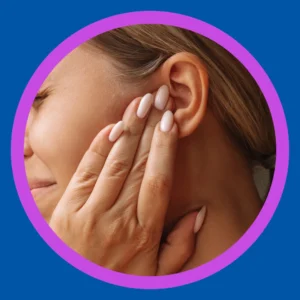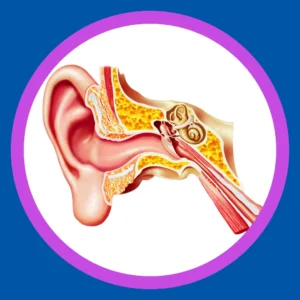Understand the Odd Sounds Your Ears Are Making
Have you noticed odd sounds coming from your ears lately? You’re not alone.
Many people experience strange ear sounds like ringing, fluttering, crackling, popping, or whooshing. These sounds can be temporary or signal an issue needing attention. Let’s explore these sounds, possible causes, and treatment options to help you find relief.
Common Sounds Your Ears Might Be Making
Your ears might produce a variety of unusual sounds. Each one can reveal something different about your ear health. Let’s break down the most common ones you may hear.
Ringing
Ringing is the most common sound people report. It often sounds high-pitched, like a whistle or tone. Some hear it as hissing, roaring, or even static-like noise. This sound is often linked to tinnitus and varies in intensity.It may come and go or remain constant throughout the day. Loud noise exposure, earwax, or inner ear damage often cause ringing sounds. Stress and certain medications can also trigger this condition.
Find out more by learning about Tinnitus Awareness Week.
Buzzing
Buzzing in the ears sounds like an electric hum or low vibration. It can feel like a faint motor running near your ear. Buzzing is another common form of tinnitus. It may stem from nerve damage, medications, or ear infections. Some people hear it intermittently, while others hear it constantly. Buzzing often affects concentration and sleep if left unmanaged.
Whooshing
Whooshing sounds resemble wind, waves, or rushing water in your ear. This type of sound often occurs in sync with your heartbeat. It’s called pulsatile tinnitus and typically involves blood flow near the ear. High blood pressure or artery abnormalities are frequent culprits. Whooshing may be subtle or intense, especially at night. It often worsens when lying down or in quiet environments.

Clicking or Popping
Clicking or popping often happens when you yawn, chew, or swallow. These sounds occur when your Eustachian tubes try to equalize ear pressure. The Eustachian tubes connect the middle ear to the back of your throat. Temporary congestion or sinus issues can trigger these pressure-related sounds. Air travel and altitude changes often cause popping in the ears. Clicking sounds might also relate to jaw problems like TMJ disorders.
Pulsatile Sounds
Pulsatile sounds feel like a heartbeat echoing in your ear. You might hear a rhythmic thumping or pulsing sound. These sounds usually match your heart rate and change with exertion. They often result from blood vessel issues near the ear. This type of tinnitus may indicate an underlying circulatory condition. It’s important to seek evaluation if these sounds persist or worsen.
Discover more about how to get rid of tinnitus.
Diplacusis
Diplacusis is a hearing condition where the same sound is perceived differently in each ear. One ear may hear a sound at a different pitch or timing than the other. This mismatch can make music, speech, or everyday sounds seem distorted or dissonant.
Understand more about diplacusis.

What Causes These Strange Ear Sounds?
Unusual ear noises can happen for many reasons. Some are harmless, while others may need treatment. Understanding the cause helps determine the right next steps.
Earwax Buildup
Excessive earwax can block the ear canal and distort sound. It often causes crackling, ringing, or muffled hearing. Attempting to remove earwax at home can worsen the problem. A hearing care provider can safely remove it for relief.
Eustachian Tube Dysfunction
When these tubes malfunction, pressure builds behind the eardrum. This causes popping, crackling, or a feeling of fullness. The dysfunction may result from allergies, sinus infections, or altitude changes.
Head or Neck Injuries
A recent injury can damage ear structures or disrupt blood flow. Even minor trauma may lead to tinnitus or fluttering feelings. Head injuries often require a thorough medical evaluation.
Medication Side Effects
Certain medications can cause or worsen tinnitus symptoms. Aspirin, antibiotics, antidepressants, and chemotherapy drugs are common triggers. Always review side effects if new sounds appear after starting a prescription.
Find out more about hearing loss with Viagra and similar medications.
Jaw and Dental Issues
Problems like TMJ disorders can affect nearby ear structures. This may lead to clicking, ringing, or pressure changes. Dental treatments or jaw alignment devices can help ease symptoms.
Inner Ear Conditions
Meniere’s disease causes fluid buildup in the inner ear. It leads to pressure, ringing, dizziness, and fluttering sensations. Other inner ear disorders can also cause strange sounds and balance issues.
Muscle Spasms
Tiny muscles in the middle ear can twitch or contract involuntarily. These spasms produce clicking, rumbling, or fluttering noises. This condition is often harmless but sometimes requires treatment.
Vascular Abnormalities
Blood vessel malformations or narrowing can disrupt ear function. Conditions like atherosclerosis or aneurysms often produce pulsatile tinnitus. These may require imaging tests for diagnosis and treatment.
Effective Treatment Options for Ear Sounds
You don’t have to live with strange ear noises forever. Treatment depends on the sound’s cause and severity. Here are the most common options available today.
1. Earwax Removal
If earwax is the problem, removal often resolves the issue. Hearing care providers use safe methods like irrigation or curettes.
2. Eustachian Tube Treatment
Treat pressure-related issues with nasal sprays or decongestants. Auto-inflation techniques can also improve tube function.
3. Medication Management
If medicine is the cause, discuss alternatives with your doctor. Switching or reducing dosage may help reduce symptoms.
4. Sound Therapy
Sound therapy masks unwanted ear noises with soothing background sounds. White noise machines or special hearing aids often provide relief.
5. Cognitive Behavioral Therapy (CBT)
CBT helps people cope with tinnitus-related stress and anxiety. It trains your brain to react less to disruptive sounds.
6. Hearing Aids
Hearing aids reduce the impact of tinnitus and improve hearing clarity. They amplify external noises to help mask ringing or buzzing. Many modern hearing aids include sound therapy features. They are especially helpful if hearing loss contributes to your symptoms. A hearing care provider can match you with the right device.
7. Dental or TMJ Treatment
If jaw problems contribute to noises, oral appliances may help. A dentist can recommend mouth guards or jaw exercises.
8. Blood Vessel Treatments
For pulsatile tinnitus, medical imaging identifies the source. Some conditions may require surgery, stents, or medication.
9. Physical Therapy
Muscle tension in the head or neck can affect your hearing. Physical therapy and stretching may reduce related ear sounds.
Don’t Ignore What Your Ears Are Telling You
Unusual ear noises can affect your comfort, focus, and quality of life. Ringing, buzzing, crackling, or pulsing sounds may point to treatable issues. Early care can prevent worsening symptoms and protect your hearing health.

Contact Stanford Hearing Today
If you’re hearing odd sounds, don’t wait. Our hearing care providers will listen, test, and guide you toward answers. Contact Stanford Hearing now to schedule your appointment and restore peace to your ears.
